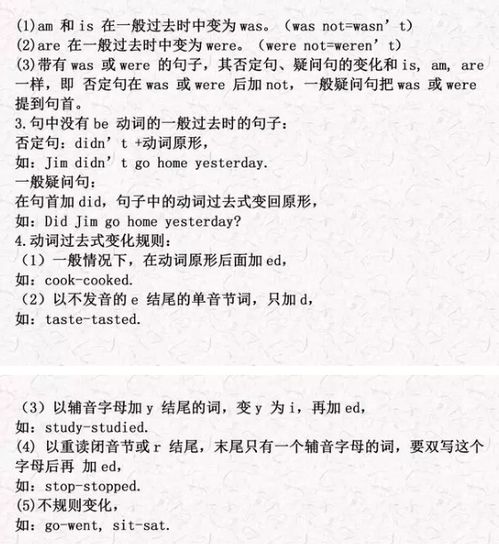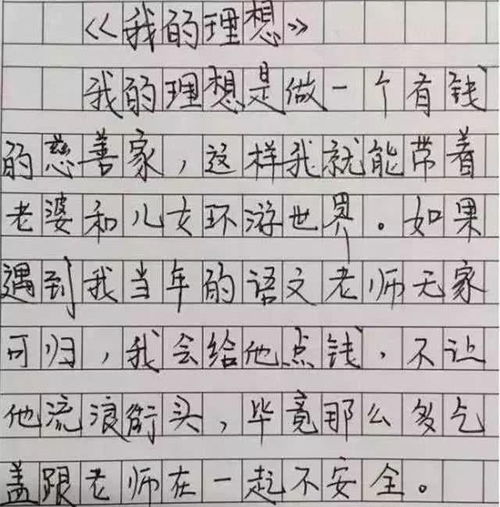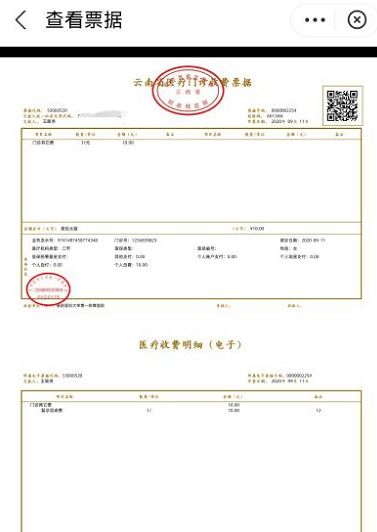consider用法考点(consider语法知识点)
- 漫画
- 2023-03-24 15:51:03
- -

英语单选
据魔方格专家权威分析,试题“He travelled to many mountains and saw many poor children, w..”主要考查你对 不定式,过去将来时 等考点的理解。关于这些考点的“档案”如下:
考点名称:不定式
动词不定式的概念:
动词不定式指由to加上动词原形(而且只能是动词原形)所构成的一种非限定性动词,但在有些情况下to可以省略。动词不定式在语法功能上可作主语、宾语、宾语补足语、
表语、定语和状语。
不定式的特殊句型对比:
1、不定式的特殊句型too…to…:
1)too…to 太…以至于…。
例如:He is too excited to speak. 他太激动了,说不出话来。
—Can I help you? 需要我帮忙吗?
—Well, I'm afraid the box is too heavy for you to carryi t, but thank you all the same. 不用了。这箱子太重,恐怕你搬不动。谢谢。
2)如在too前有否定词,则整个句子用否定词表达肯定,too后那个词表达一种委婉含义,意为“不太”。
例如:It's never too late to mend. 改过不嫌晚。(谚语)
3)当too前面有only, all, but时,意思是:非常…等于very。
例如:I'm only too pleased to be able to help you. 能帮助你我非常高兴。
He was but too eager to get home. 他非常想回家。
2、不定式的特殊句型so as to:
1)表示目的:它的否定式是so as not to do。
例如:Tom kept quiet about the accident so as not to lose his job. 汤姆对事故保持沉默是为了不丢掉他的工作。
Go in quietly so as not to wake the baby. 轻点进去,别惊醒了婴儿。
2)表示结果:
例如:Would you be so kind as to tell me the time? 劳驾,现在几点了。
3、不定式的特殊句型:Why not:
“Whynot+动词原形”表达向某人提出建议,翻译为:为什么不……? 干吗不……?
例如:Why not take a holiday?
不定式的用法:
1、不定式作补语:
1)有些有动词+宾语+不定式的结构。
例如:advise allow cause challenge command compel drive驱使
enable encourage forbid force impel induce instruct invite like/love order permit make let have want get warn persuade request send tell train urge 等。
例如:Father will not allow us to play on the street. 父亲不让我们在街上玩耍。
The officer ordered his men to fire. 长官命令士兵开火。
注意:有些动词如make,have,get,want等可用不定式作做宾补,也可用分词作宾补。现在分词表达主动,也表达正在进行,过去分词表达被动。
2)有些有动词+宾语+不定式的结构,不定式的动词往往是be,不定式一般可以省去。
例如:consider find believe think declare(声称) appoint guess fancy(设想) guess judge imagine know 等。
例如:We believe him to be guilty. 我们相信他是有罪的。
We know him to be a fool. 我们知道他是个笨蛋。(tobe不能省去)
典型例题:Charles Babbage is generally considered___the first computer.
A. to invent
B. inventing
C. to have invented
D. having invented
答案:C. 一般没有consider+宾语+be以外不定式的结构,也没有consider+宾语+doing的结构,排除A、B、D。consider用动词be以外的不定式作宾补时,一般要求用不定式的完成式,故选C。 3)有些动词可以跟there+to be的结构。例如:believe expect intend like love mean prefer want wish understand 等。
例如:We didn't expect there to be so many people there. 我们没料到会有那么多人在那里。
You wouldn't want there to be another war. 你不至于想让另外一场战争发生吧。
2、不定式作主语:
不定式作主语,往往用it作形式主语,真正的主语不定式放至句子的后面。
例如:It's so nice to hear your voice. 听到你的声音真高兴。
It's necessary for you to lock the car when you do not use it. 不用车的时候,锁车是有必要的。
It's very kind of you to help us. 他帮助我们,他真好。
It seemed selfish of him not to give them anything. 他不给他们任何东西,这显得太自私了。
3、不定式作表语:
不定式可放在be动词后面,形成表语。
例如:My work is to clean the room every day. 我的工作是每天清扫房间。
His dream is to be a doctor. 他的梦想是成为一名医生。
4、不定式作定语:
不定式做定语通常要放在被修饰的词后,往往表示未发生的动作。
例如:I have a lot of work to do.我有许多事要做。
There was nothing to bring home that morning. 那天早上(他回家时)两手空空。
5、不定式作状语:
1)目的状语:常用结构为to do,only to do(仅仅为了), in order to do,so as to do,so(such)...asto…(如此…以便…)。
例如:He ran so fast as to catch the first bus. 他飞快地跑以便赶上第一班车。
I come here only to say good-bye to you. 我来仅仅是向你告别。
2)作结果状语,可以表示没有预料到的或事与愿违的结果,不定式要放在句子后面。
例如:I awoke to find my truck gone. 我醒来发现箱子不见了。
He searched the room only to find nothing. 他搜索了房间,没发现什么。
3)表原因:
例如:I'm glad to see you. 见到你很高兴。
She wept to see the sight. 她一看到这情形就哭了。
4)表示理由和条件:
例如:He must be a fool to say so.
You will do well to speak more carefully.
You will do well to speak more carefully.
考点名称:过去将来时
过去将来时的概念:
过去将来时表示从过去的某一时间来看将来要发生的动作或存在的状态。过去将来时常用于宾语从句和间接引语中。过去将来时的出发点是过去,即从过去某一时刻看以后要发生的动作或状态。
过去将来时的结构:
(1)would+动词原形:
如:She told us that she would try her best to catch up with other classmates this term. 她告诉我们说她将一切努力在本期赶上其他同学们。
When you asked Li Lei for help, he would never refuse you. 过去当你请她帮忙时,他绝不会拒绝。
(2)was/were going to+动词原形:
如:He told us that he was going to attend the meeting. 他告诉我说他要参加那次会议。
He said that I was going to be sent to meet her at the railway station.他说将要派我去火车站接她
(3)was/were to+动词原形:
如:The building was to be completed next month. 这座建筑改在下个月竣工。
Li Lei was to arrive soon. 李蕾很快就要到了。
(4)was/were about to+动词原形:
如:We were about to leave there when it began to rain heavily and suddenly. 就在我们要离开时,天突然下起了大雨。
He was about to have lunch when the bell rang. 就在他要吃中饭的时候,门铃响起来了。
(5)was/were+现在分词:
如:He was leaving the next day. 他第二天要走了。
We were informed that the leaders were coming to our school soon. 我们接到通知说领导们很快要来我们学校。
过去将来时的用法:
(1)过去将来时,一般用于主句为过去时的宾语从句中。
如:He said he would stay with us. 他说他要与我们呆在一起。
He said he would never go there again. 他说他绝不会再去那儿。
(2)过去将来时,用于虚拟语气中。
如:If I were you, I would not do that. 要是我是你的话,我就不会那样做。
If he were here, he would show us how to do it. 如果他在这儿,他就会向我们展示该如何做了。
过去将来时用法拓展:
was/were going to+动词原形;
was/were to+动词原形;
was/were about to+动词原形等结构都可表达当时一种未曾实现的意图或打算。
如:The conference was going to be held the next month. 会议下个月开。
We were to have our class at eight. 八点我们该上课了。
I was about to tell him about it when WuDong go tin. 就在我要告诉他时,吴东进来了。
英语高考必背知识要点有哪些
高二英语 在整个高中英语中占有非常重要的地位,既是高二又是整个高中阶段的重难点,所以要保持良好的学习心态和正确的 学习 方法 。接下来是我为大家整理的英语高考必背知识要点,希望大家喜欢!
英语高考必背知识要点一
一、不定式做主语:
1、不定式做主语一般表示具体的某次动作。===动名词doing 表示习惯的,经常的动作。
e.g: To finish the building in a month is difficult.
To do such things is foolish.
To see is to believe. (对等)
注: 1). 不定式作主语时,谓语用单数
2). 当主语较长,谓语较短时,常用it做形式主语,而将不定式放到谓语的后面。
it做形式主语,不定式放在谓语动词之后常用于下列结构中:
(1)It is/was +adj.+of sb. to do…
(2) It is +adj.+for sb.+to do…
It is easy / difficult / hard / foolish / unwise / right / wrong / unnecessary
(3) it is +a +名词+ to do...
It is a pity / a pleasure / a pleasant thing / one’s duty / an honor / a shame / a crime / no easy job… to do
It takes (sb.) some time / courage / patience …to do…
It requires courage / patience / hard work… to do…
注意: probable 和 possible 均可作表语,但possible可以用不定式作真实主语, 而probable不能用不定式作真实主语。
It is probable for him to come to the meeting.(错)
It is possible for him to come to the meeting.
It is possible / probable that he will come to the meeting.
英语高考必背知识要点二
一、非谓语动词
“非谓语动词”可分为动词不定式、动名词和分词.它在 句子 中的作用很多:除了不作谓语外,它可以充当主语、宾语、表语、定语、状语与复合宾语(主语补语或宾语补语).有些及物动词后面接不带to的不定式作复合宾语.这些动词归纳如下:一感(feel).二听(hear,listen to),三让(have,1et, make),四看(see,watCh,notice,observe).再加上help somebody(to)do something和美国英语look at somebody do somthing.还有“二让”属特殊:get somebody to do something 与keep somebody doing.而有些及物动词后面接动名词(the -ing form)作宾语.这些动词归纳为一句话:Papa C makes friends.这是由如下动词的开头字母组成:permit,advise, practise,avoid,consider,mind, allow,keep,enjoy,suggest, finish,risk,imagine,escape,need,delay,stand(忍受). 为了容易记住,也可以编成 顺口溜 :“允许完成练习,建议避免冒险,考虑延期逃跑,喜欢保持想象,需要反对忍受”.其相对应的动词依次是:permit/allow,finish,practise;
advise/suggest, avoid,risk: consider, delay, escape/miss; enjoy/appreciate, keep, imagine; need/want/require,mind. can't help/can’t stand.
二、复合句
1、学生最容易混淆的是定语从句与同位语从句的区别.
例如:A、The news that our team has won the match is true. (同位语从句)
B、The news that he told us surprised everybody here. (定语从句)
关键的区别在于连接或关系代词that:有意义的是定语, 无意义的是同位.因为引导定语从句的that在从句中作主语或 宾语,而引导同位语从句的that只起到连接词的作用.
2、接着容易混淆的是引导定语从句的关系代词that与 which:that之前是不定(代词)、序数(词)、(形容词)级:which之前是介词 短语 与逗号(非限制性).
例如:A、All that we have to do is to practise every day.
B、The first lesson that I learned will never be forgotten.
C、I have lost my pen,which I like very much.
D、The house in front of which there is a garden is my home.
三、It的用法
1、It除了代替人和物以外,还可以作形式主语.而真正的主语(不定式、动名词或从句)则放于谓语或表语之后.
例如:It is nor easy to finish the work in two days.
然而有少数表语之后接动名词作真正的主语.这些表语是:无助(no help)、无用(no use)、没好处(no good);工作(hard work)、费时(a waste of time)、又危险(a danger).
例如:A、It is no use crying over spilt milk.
B、It is a waste of time waiting for him.
2、It还可以作形式宾语.通常下列动词后面可接it作形式宾语:2f2tcjm(find,feel,think,take,consider,judge, make).
例如:A、He made it clear that he was not interested in this subject.
B、I think it no use arguing with him.
3、It用于强调句式.要强调句子的某一部分(主语、宾语、 状语),可以把it当作先行词.这种句子的结构是:It is(was)+ 被强调部分+that(who)+句子的其余部分.
例如:A、It iS Professor Lin who teaches us English—(强调主语)
B、It was in Shanghai that l saw the film.—(强调状语)
C、It was in 1990 that I worked in the factory.(同上)
但要注意与定语从句的区别.
例如:D、It was 1990 when I worked in the factory.(定语从句)
在强调句式里,我们把强调结构It is(was)…that除去,句子还很完整.如例句C.而例句D就不能.
四、倒装结构
学生容易混淆的是全部倒装与部分倒装.如何区分之,编个顺口溜:副(adv.)介(prep.)提前全倒装, 其它 句式部分倒;否定提前倒助动,让步状语倒表语;复合句式倒主句,不
倒装的属特殊.下面举例说明:
A、Here comes the bus.(副词提前,全倒装)
B、Here he comes.(代词作主语,不倒装)
C、In front of the house lies a garden.(介词短语提前,全倒装)
D、Never shall I do this again.(否定词提前,部分倒装)
E、Young as he is ,he knows a lot.(让步状语从句,表语倒装)
F、Only when he told me did I realize what trouble he was in.(only 修饰状语,主句倒装)
G、Only he can save the patient.(only修饰主语.不倒装)
H、Not only will help be given to people,but also medical treatment will be provided.(否定词提前,部分倒装)
I、Not only he but also we like sports.(连接两个主语,不倒装)
五、虚拟语气
虚拟语气也是一个难点.所谓虚拟语气是表示说话人的愿望、假设、猜测或建议,而不表示客观存在的事实.它通过句子的谓语动词的特殊形式来表示.现归纳如下:纯假设,用虚拟,动词时态退一级:条件句,分主从,主句谓语前加would (should,could,might);表愿望,用虚拟,wish后面接宾语(从句):现在过去与将来,动词时态退一级:提建议,用虚拟,宾语(从句)动词用(should)do:俩建议,三要求,再加坚持与命令(suggest,advise,demand,require,request,insist,order):It is time和eoukd rather,后接丛句用虚拟:部分主语从句中, 谓语用虚拟结构 (It is necessry /important/natural/natural/strange/strange that……should do). 下面举例说明:
A、If you came tomorrow,we would have the metting. (条件句虚拟)
B、Without air,there would be no living things.(同上)
C、We wish we had arrived there two hours earlier.(表示愿望虚拟)
D、He demanded that we (should)start right away.(表示建议虚拟)
E、It is(high)time that we left (should leave)now.(特殊从句虚拟)
F、I would rather you gave me the book.(同上)
G、It is necessary that we should clean the room everyday,(主语从句虚拟)
H、He speaks English so fluently as if he were English. (特殊从句虚拟)
英语高考必背知识要点三
1. 高考 英语口语 考试必背
2. I see. 我明白了。
3. I quit! 我不干了!
4. Let go! 放手!
5. Me too. 我也是。
6. My god! 天哪!
7. No way! 不行!
8. Come on. 来吧(赶快)
9. Hold on. 等一等。
10. I agree。 我同意。
11. Not bad. 还不错。
12. Not yet. 还没。
13. See you. 再见。
14. Shut up! 闭嘴!
15. So long. 再见。
16. Why not? 好呀! (为什么不呢?)
17. Allow me. 让我来。
18. Be quiet! 安静点!
19. Cheer up! 振作起来!
20. Good job! 做得好!
21. Have fun! 玩得开心!
22. How much? 多少钱?
23. I'm full. 我饱了。
24. I'm home. 我回来了。
25. I'm lost. 我迷路了。
26. My treat. 我请客。
27. So do I. 我也一样。
28. This way。 这边请。
29. After you. 您先。
30. Bless you! 祝福你!
31. Follow me. 跟我来。
32. Forget it! 休想! (算了!)
33. Good luck! 祝好运!
34. I decline! 我拒绝!
35. I promise. 我保证。
36. Of course! 当然了!
37. Slow down! 慢点!
38. Take care! 保重!
39. They hurt. (伤口)疼。
40. Try again. 再试试。
41. Watch out! 当心。
42. What's up? 有什么事吗?
43. Be careful! 注意!
44. Bottoms up! 干杯(见底)!
45. Don't move! 不许动!
46. Guess what? 猜猜看?
47. I doubt it 我怀疑。
48. I think so.我也这么想。
49. I'm single. 我是单身贵族。
50. Keep it up! 坚持下去!
英语高考必背知识要点有哪些相关 文章 :
1. 高考英语必背知识点
2. 2017年高考英语必背知识点
3. 高考英语必考的40个重点句型
4. 2020新高三英语超全规划与高考英语高分必背知识点
5. 高二英语必背知识点重点归纳
6. 英语高考知识点归纳
7. 英语高考知识点总结归纳
8. 高考英语知识点归纳整理
9. 高考英语知识点归纳
10. 高考英语知识点考点归纳
[img]
有没初中的英语老师或英语高手帮下.
一、动词+介词1.look at … 看……, look like … 看上去像……, look after … 照料……2.listen to … 听…… 3.welcome to … 欢迎到…… 4.say hello to … 向……问好5.speak to … 对……说话此类短语相当于及物动词,其后必须带宾语,但宾语无论是名词还是代词,都要放在介词之后。 二、动词+副词“动词+副词”所构成的短语义分为两类:A.动词(vt.)+ 副词1.put on 穿上 2.take off 脱下 3.write down 记下此类短语可以带宾语,宾语若是名词,放在副词前后皆可;宾语若是人称代词,只能放在副词的前面。B.动词(vi.)+ 副词。1.come on 赶快 2.get up 起床 3.go home 回家4.come in 进来 5.sit down 坐下 6.stand up 起立此类短语属于不及物动词,不可以带宾语。 三、其它类动词词组1. close the door 2. 1ook the same 3. go to work / class4. be ill 5. have a look / seat 6. have supper7. 1ook young 8. go shopping 9.watch TV / games10. play games [介词短语聚焦] “介词+名词/代词”所构成的短语称为介词短语。现将 Units l ~ 16 常用的介词短语按用法进行归类。1.in + 语言/颜色/衣帽等,表示使用某种语言或穿着……。2.in + Row / Team/ Class / Grade 等,表示“在……排/队/班级/年级”等。3.in the morning / afternoon/ evening / 表示“在上午/下午/傍晚”等一段时间。4.in the desk / pencil-box/bedroom 等表示“在书桌/铅笔盒/卧室里”。5.in the tree 表示“在树上 (非树本身所有)”;on the tree表示“在树上(为树本身所有)”。6.in the wall 表示“在墙上(凹陷进去)”;on the wall 表示“在墙上(指墙的表面)”。7.at work(在工作)/ at school(上学)/ at home(在家)应注意此类短语中无 the。8.at + 时刻表示钟点。9.like this / that 表示方式,意为“像……这/那样”。10.of 短语表示所属关系。11.behind / beside / near / under + 名词等,表示方位、处所。12.from 与 to 多表示方向,前者意为“从……”,后者意为“到……”。另外,以下这些短语也必须掌握。如:on duty, after breakfast, at night, at the door, in the middle, in the sky, on one's bike 等。 [重点句型大回放] 1.I think …意为“我认为……”,是对某人或某事的看法或态度的一种句型。其否定式常用 I don't think …。2.give sth. to sb. / give sb. sth. 意为“把……给……”,动词 give 之后可接双宾语,可用这两种句型;若指物的宾语是人称代词时,则只能用 give it / them to sb.3.take sb. / sth. to … 意为“把……(送)带到……”,后常接地点,也可接人。4.One …, the other … / One is … and one is … 意为“一个是……;另一个是……”,必须是两者中。5.Let sb. do sth. 意为“让某人做某事”,人后应用不带to的动词不定式,其否定式为 Don't let sb.,do sth.,或 Let sb. not do sth. 另外,Let's 与 Let us 的含义不完全相同,前者包括听者在内,后者不包括听者在内,6.help sb. (to) do sth. / help sb. with sth.意为“帮助某人做某事”,前者用不定式作宾补,后者用介词短语作宾补,二者可以互换. 7.What about …?/ How about …?意为“……怎么样?”是用来询问或征求对方的观点、意见、看法等。about 为介词,其后须接名词、代词或 V-ing 等形式。8.It's time to do … / It's time for sth. 意为“该做……的时间了”,其中 to 后须接原形动词,for 后可接名词或 V-ing 形式。9.like to do sth. / like doing sth. 意为“喜欢做某事”,前一种句型侧重具体的一次性的动作;后一种句型侧重习惯性的动作,10.ask sb. (not) to do sth. 意为“让某人(不要)做某事”,其中 ask sb. 后应接动词不定式,11.show sb. sth. / show sth. to do. 意为“把某物给某人看”,该句型的用法同前面第2点。12.introduce sb. to sb. 意为“把某人介绍给另一人”;introduce to sb. 则是“向某人作介绍”。初一至初二英语知识点 语法点(二) [重点短语快速复习] 1. kinds of 各种各样的2. either … or … 或者……或者……,不是……就是…… 3. neither … nor … 既不……也不…… 4. Chinese tea without, anything in it 中国清茶5. take a seat 就坐6. home cooking 家常做法7. be famous for 因……而著名8. on ones way to 在……途中9. be sick / ill in hospital 生病住院10. at the end of 在……的尽头,在……的末尾11. wait for 等待12. in time 及时13. make one's way to … 往……(艰难地)走去14. just then 正在那时15. first of all 首先,第一16. go wrong 走错路17. be/get lost 迷路18. make a noise 吵闹,喧哗19. get on 上车20. get off 下车21. stand in line 站队22. waiting room 候诊室,候车室23. at the head of … 在……的前头24. laugh at 嘲笑25. throw about 乱丢,抛散26. in fact 实际上27. at midnight 在半夜28. have a good time = enjoy oneself 玩得愉快29. quarrel with sb. 和某人吵架30. take one's temperature 给某人体温31. have / get a pain in…某处疼痛32. have a headache 头痛33. as soon as … 一……就…… 34. feel like doing sth. 想要干某事35. stop … from doing sth. 阻止……干某事36. fall asleep 入睡37. again and again 再三地,反复地38. wake up 醒来,叫醒39. instead of 代替40. look over 检查41. take exercise 运动42. had better(not) do sth. 最好(不要)干某事43. at the weekend 在周末44. on time 按时45. out of从……向外46. all by oneself 独立,单独47. lots of = a lot of 许多48. no longer / more = not … any longer / more 不再49. get back 回来,取回50. sooner or later迟早51. run away 逃跑52. eat up 吃光,吃完53. run after 追赶54. take sth. with sb. 某人随身带着某物55. take(good) care of … = look after … (well) (好好)照顾,照料56. think of 考虑到,想起57. keep a diary 坚持写日记58. leave one by oneself 把某人单独留下59. harder and harder 越来越厉害60. turn on 打开(电灯、收音机、煤气等)61. turn off 关 1.finish, enjoy, feel like, consider,imagine, keep,postpone, dely,mind,practise, suggest,risk,quit+doing
2.1)forget to do 忘记要去做某事(此事未做)
forget doing忘记做过某事(此事已做过或已发生)
2)stop to do 停止、中断(某件事),目的是去做另一件事
stop doing 停止正在或经常做的事
3)remember to do 记住去做某事(未做)
remember doing记得做过某事(已做)
4) regret to do对要做的事遗憾
regret doing对做过的事遗憾、后悔
5)try to do努力、企图做某事
try doing试验、试一试某种办法
6) mean to do打算,有意要…
mean doing意味着
7)go on to do 继而(去做另外一件事情)
go on doing 继续(原先没有做完的事情)
8)propose to do 打算(要做某事)
proposing doing建议(做某事)
9) like /love/hate/ prefer +to do 表示具体行为;+doing sth 表示抽象、倾向概念
(注)如果这些动词前有should一词,其后宾语只跟不定式,不能跟动名词。例如:
I should like to see him tomorrow.
10) need, want, deserve +动名词表被动意义;+不定式被动态表示“要(修、清理等)”意思。
Don’t you remember seeing the man before?你不记得以前见过那个人吗?
You must remember to leave tomorrow.你可要记着是明天动身。
I don’t regret telling her what I thought.我不后悔给她讲过我的想法。(已讲过)
I regret to have to do this, but I have no choice.我很遗憾必须这样去做,我实在没办法。(未做但要做)
You must try to be more careful.你可要多加小心。
Let’s try doing the work some other way.让我们试一试用另外一种办法来做这工作。
I didn’t mean to hurt your feeling.我没想要伤害你的感情。
This illness will mean (your) going to hospital.得了这种病(你)就要进医院。
3.省to 的动词不定式
1) 情态动词 ( 除ought 外,ought to):
2) 使役动词 let, have, make:
3) 感官动词 see, watch, look at, notice , observe, hear, listen to, smell, feel, find 等后作宾补,省略to。
注意:在被动语态中则to 不能省掉。
I saw him dance.
=He was seen to dance.
The boss made them work the whole night.
=They were made to work the whole night.
4) would rather,had better:
5) Why… / why not…:
6) help 可带to,也可不带to, help sb (to) do sth:
7) but和except:but前是动词do时,后面出现的动词用不带to的动词不定式。
8) 由and, or和than连接的两个不定式,第二个to 可以省去:
9) 通常在discover, imagine, suppose, think, understand等词后,可以省去to be:
He is supposed (to be) nice. 他应该是个好人。
4. (1)) 有些及物动词用不定式作宾语,结构为动词+不定式。例如:
afford
aim
agree
arrange
ask
decide
bother
care
choose
demand
desire
determine
elect
endeavor
hope
fail
help
learn
long 渴望
mean
manage
offer
plan
pretend
refuse
tend
undertake
expect
hate
intend
例如:
The driver failed to see the other car in time. 司机没能及时看见另一辆车。
He offered to help me. 他表示愿意帮助我。
(2)有些有动词+宾语+不定式的结构。例如:
advise
allow
cause
challenge
command
compel
drive 驱使
enable
encourage
forbid
force
impel
induce
instruct
invite
like/love
order
permit
make
let
have
want
get
warn
persuade
request
send
tell
train
urge
例如;
Father will not allow us to play on the street. 父亲不让我们在街上玩耍。
The officer ordered his men to fire. 长官命令士兵开火。
注意:有些动词如make,have,get,want等可用不定式作做宾补,也可用分词作宾补。现在分词表达主动,也表达正在进行,过去分词表达被动。
3) 有些有动词+宾语+不定式的结构,不定式的动词往往是be,不定式一般可以省去。例如:
consider
find
believe
think
declare(声称)
appoint
guess
fancy(设想)
guess
judge
imagine
know
例如:
We believe him to be guilty. 我们相信他是有罪的。
We know him to be a fool. 我们知道他是个笨蛋。(to be 不能省去)
典型例题
Charles Babbage is generally considered ___ the first computer.
A. to invent B. inventing C. to have invented D. having invented
答案:C. 一般没有consider+宾语+be以外不定式的结构,也没有consider+宾语+doing的结构,排除A、B、D。consider用动词be以外的不定式作宾补时,一般要求用不定式的完成式,故选C。
4) 有些动词可以跟there +to be的结构。例如:
believe
expect
intend
like
love
mean
prefer
want
wish
understand
例如:
We didn't expect there to be so many people there. 我们没料到会有那么多人在那里。
You wouldn’t want there to be another war. 你不至于想让另外一场战争发生吧。
英语有很多很细小的知识点,而这些细小的知识点往往就是考点。同学们很容易由于注意不到而犯错误,下面就初一年级同学们比较容易犯错误的知识点做一个汇总。 [第一类] 名词类1. 这些女老师们在干什么?[误] What are the woman teachers doing?[正] What are the women teachers doing?[析] 在英语中,当一名词作定语修饰另一名词(单或复数形式)时,作定语的名词一般要用其单数形式;但当man, woman作定语修饰可数名词复数形式时,要用其复数形式men, women. 2. 房间里有多少人?[误] How many peoples are there in the room?[正] How many people are there in the room?[析] people作“人、人们”解时,是个集合名词,其单复数同形。3. 我想为我儿子买两瓶牛奶。[误] I want to buy two bottle of milk for my son. [正] I want to buy two bottles of milk for my son.[析] 表示不可数名词的数量时,常用“a / an或数词+表量的可数名词+ of + 不可数名词”这一结构,其中当数词大于1时,表量的可数名词要用其复数形式。[第二类] 动词类4. 你妹妹通常什么时候去上学?[误] What time does your sister usually goes to school?[正] What time does your sister usually go to school?[析] 借助助动词do(或does)构成疑问句或否定句时,句中的谓语动词用其原形。5. 琳达晚上经常做作业,但今晚她在看电视。[误] Linda often do her homework in the evening, but this evening she watching TV.[正] Linda often does her homework in the evening, but this evening she is watching TV. [析] 在初一英语学习阶段,我们接触到了两种主要时态:一般现在时和现在进行时。一般现在时表示经常的或习惯性的动作,常和often, usually, sometimes 等时间状语连用。在一般现在时的句子中,若主语是第三人称单数,谓语动词要用其第三人称单数形式。现在进行时表示现阶段正在进行或发生的动作,现在进行时由be(am / is / are)+ving形式构成。6. 这双鞋是红色的。[误] This pair of shoes are red. [正] This pair of shoes is red. [析] 在shoes, trousers, gloves, glasses等表示成双成对的衣物或工具名词前用pair(表计量)修饰时,谓语动词的形式由pair的单复数形式来决定。[第三类] 代词类7. 这张票是她的,不是我的。[误] This is hers ticket. It’s not my.[正] This is her ticket. It’s not mine. [析] 物主代词有形容词性物主代词和名词性物主代词之分。形容词性物主代词之后一定要接名词,而名词性物主代词之后不需接任何词。8. 吴老师教我们英语。[误] Miss Wu teaches our English. [正] Miss Wu teaches us English. [析] teach sb. sth..中的sb.作teach的宾语,因此当sb.为人称代词时要用其宾格形式。来源:考试大-中考考试 [第四类] 介词类9. 你能找到这个问题的答案吗?[误] Can you find the answer of this question?[正] Can you find the answer to this question?[析] 英语中用“the answer to …”表示“……的答案”。类似结构还有the key to the door, the way to the zoo等。
consider后不可跟动词不定式作宾语,为什么,固定搭配吗,还是有原因?
固定搭配而已,不需要纠结什么原因,也没有什么原因。
consider 相关的一些常用固定搭配如下表:
consider (doing) sth 考虑(做)某事
consider sb/sth (to be)...;consider sb/sth as... 认为某人/物......
consider sb/sth to have done sth 认为某人/物做过某事
英语一阅读高频考点及解题技巧
2018年考研的时间也不多了,这时候拼的是爆发力,拼的是方法和效率,每个科目复习都要集中精力做更利与提分和决定成败的部分,在阅读理解上要抓住一些常考知识点和技巧就行了。以下是我推荐英语一阅读高频考点及一些解题技巧的知识,欢迎阅读!
英语一阅读高频考点
一、as结构
regard…as…(2011)
call…as…(2011)
use…as…(2004)
consider…as…(2004)
treat…as…(2014)
portray…as…(2012)
view…as…
see…as…
look upon…as
treat…as…
think of…as…
二、否定词
2011 Q22 细节题---猜词 unpretentious-modest
2011 Q39 细节推理题---猜词 unrealistic-misleading
2012 Q26 词义题 reneging on-dishonoring
2012 Q40 态度题 but, bad-disapproval
2013 Q23词义题 indictment-accusation
2014 Q24 细节推理 hurting, terrifying, embarrassing, hard to get-uneasy
2015 Q27 态度题 discard-disapproval
三、特殊标点
2013 Q34 细节题 冒号
2012 Q24 细节推理题 冒号
2012Q 29 细节题 冒号
2011 Q36 观点题 冒号
2007 Q31 细节题 冒号
2012 Q36 推理题 分号
2013 Q25 主旨题 分号
2014 Q38 细节题 分号
英语一阅读解题技巧
阅读解题技巧
一、细节题
【解题方法】题干+选项精确定位法
【解题步骤】
1. 找题干关键词,精确定位到文章(题干的关键词一般会定位到文章的某句或者相连的两句中)
2. 将所选答案精确定位到文章
【例题】2012年Text1
22. Rosenberg holds that public-health advocates should _________.
[A] recruit professional advertisers
[B] learn from advertisers' experience
[C] stay away from commercial advertisers
[D] recognize the limitations of advertisements
The idea seems promising,and Rosenberg is a perceptive observer. Her critique of the lameness of many public-health campaigns is spot-on: they fail to mobilize peer pressure for healthy habits, and they demonstrate a seriously flawed understanding of psychology. "Dare to be different, please don't smoke!" pleads one billboard campaign aimed at reducing smoking among teenagers-teenagers, who desire nothing more than fitting in. Rosenberg argues convincingly that public-health advocates ought to take a page from advertisers, so skilled at applying peer pressure.
【解题步骤应用】
1 题干定位:段落的最后一句
Rosenberg--- Rosenberg
holds---argues
that---that
public-health advocates--- public-health advocates
should---ought to
因此,答案定位在take a page from advertisers, so skilled at applying peer pressure.
2 选项定位
答案[B] learn from advertisers' experience
learn from---take a page from 表"学习"。
experience---skilled 表示"有经验的,很娴熟的"。
二、推断题
【解题方法】找段落中心句
寻找段落中心句方法:
第一、逻辑上出现转承关系的句子(转折、因果、递进,即有therefore, thus, but, however, in short, all in all 等提示词的句子);
第二、有明确表示观点的路标指引词(think, believe, deny, acknowledge, insist, according to, claim…)
第三、含有情态动词的句子(should, must…)
第四、含有特殊标点的句子(冒号、破折号、引号、括号)
第五、特殊句型(疑问句、倒装句、强调句、省略句)
第六、平铺直叙段落中,注意首末句
【解题步骤】
1. 根据题干,寻找该段落中心句,
2. 正确答案即段落中心句的同义改写
【例题】2009年Text4
37. It is suggested in paragraph 2 that New Englanders________.
[A] experienced a comparatively peaceful early history
[B] brought with them the culture of the Old World
[C] paid little attention to southern intellectual life
[D] were obsessed with religious innovations
To take this approach to the New Englanders normally means to start with the Puritans' theological innovations and their distinctive ideas about the church-important subjects that we may not neglect. But in keeping with our examination of southern intellectual life, we may consider the original Puritans as carriers of European culture, adjusting to New World circumstances. The New England colonies were the scenes of important episodes in the pursuit of widely understood ideals of civility and virtuosity.
【解题步骤应用】
1. 寻找段落中心句(转折处)
But in keeping with our examination of southern intellectual life, we may consider the original Puritans as carriers of European culture, adjusting to New World circumstances.
2. 正确答案即段落中心句的同义改写
答案[B] brought with them the culture of the Old World
New Englanders--- the original Puritans
brought with ---carriers
them---the original puritans
the culture---culture
old world---European
三、态度题
【解题方法】作者态度分类法
1. 在判断感情色彩时,应结合以下两点。
1)作者态度可以分为三大类:a. 正向态度:支持,乐观,赞同; b. 客观、中立、公正;c. 负向态度:反对、批评、怀疑
2)特别注意作者的态度一般与文章中心相联系。不要把自己的态度纳入其中,而且要注意区分作者的态度和作者引用别人的态度。
2. 匹配选项。匹配选项时应该注意:
1)有些选项一定不是正确答案(永陪选项):indifferent(漠不关心);subjective(主观的);biased(有偏见的);puzzled(迷惑不解的)。
2)一般带有绝对化或者过于强烈的语气的选项必然是错误的,如:strongly;completely;entirely。
3. 态度题的新趋势:
1)现在题目的考察不仅仅局限于作者的态度,也开始考察文章中某人的观点和态度,做题时特别应该注意看清楚题目考察的是谁对谁的态度。
2)选项可能不在是态度明确的肯定或者否定的词,而是改为带有程度限制的词语,带有如下词语的选项往往是正确的:guarded慎重的,qualified有条件的,tempered缓和的,因为带有保留态度的观点比较客观,一般带有绝对化或者过于强烈的语气的选项必然是错误的,如:strongly completely entirely
【解题步骤】
1.判断选项ABCD的态度正负向,将四个选项进行分类(正向,负向)
2.根据关键词,回文定位判断态度。
【例题】2015年Text 2
They should start by discarding California's lame argument that exploring the contents of a smartphone - a vast storehouse of digital information - is similar to, say, rifling through a suspect's purse. The court has ruled that police don't violate the Fourth Amendment when they sift through the wallet or pocketbook of an arrestee without a warrant.
27. The author's attitude toward California's argument is one of
[A] disapproval.
[B] indifference.
[C] tolerance.
[D] cautiousness.
【解题步骤应用】
1 判断选项态度的正负向
[A] disapproval反对的(负)
[B] indifference漠不关心的(中立)
[C] tolerance包容(正)
[D] cautiousness谨慎的(正)
2 回文判断态度
They should start by discarding California's lame argument
因此,根据文章的discarding,可以确定是表示负向否定态度,因此答案选A。
四、主旨题
【解题方法】1串线法 2主题词复现法 3框架法
【解题步骤】
1. 找出段落中心句或者主题词
2. 串联各段段落中心句,合并同类项,即可得出全文主旨
【例题】2008年Text 1
25. Which of the following would be the best title for the text?
[A] Strain of Stress: No Way Out?
[B] Responses to Stress: Gender Difference
[C] Stress Analysis: What Chemicals Say?
[D] Gender Inequality: Women Under Stress
While still catching up to men in some spheres of modern life, women appear to be way ahead in at least one undesirable category. "Women are particularly susceptible to developing depression and anxiety disorders in response to stress compared to men," according to Dr. Yehuda, chief psychiatrist at New York's Veteran's Administration Hospital.
Studies of both animals and humans have shown that sex hormones somehow affect the stress response, causing females under stress to produce more of the trigger chemicals than do males under the same conditions. In several of the studies, when stressed-out female rats had their ovaries (the female reproductive organs) removed, their chemical responses became equal to those of the males.
Adding to a woman's increased dose of stress chemicals, are her increased "opportunities" for stress. "It's not necessarily that women don't cope as well. It's just that they have so much more to cope with," says Dr. Yehuda. "Their capacity for tolerating stress may even be greater than men's," she observes, "it's just that they're dealing with so many more things that they become worn out from it more visibly and sooner."
Dr. Yehuda notes another difference between the sexes. "I think that the kinds of things that women are exposed to tend to be in more of a chronic or repeated nature. Men go to war and are exposed to combat stress. Men are exposed to more acts of random physical violence. The kinds of interpersonal violence that women are exposed to tend to be in domestic situations, by, unfortunately, parents or other family members, and they tend not to be one-shot deals. The wear-and-tear that comes from these longer relationships can be quite devastating."
Adeline Alvarez married at 18 and gave birth to a son, but was determined to finish college. "I struggled a lot to get the college degree. I was living in so much frustration that that was my escape, to go to school, and get ahead and do better." Later, her marriage ended and she became a single mother. "It's the hardest thing to take care of a teenager, have a job, pay the rent, pay the car payment, and pay the debt. I lived from paycheck to paycheck."
Not everyone experiences the kinds of severe chronic stresses Alvarez describes. But most women today are coping with a lot of obligations, with few breaks, and feeling the strain. Alvarez's experience demonstrates the importance of finding ways to diffuse stress before it threatens your health and your ability to function.
【解题步骤应用】
1. 总结每段中心
Para1 女性比男性压力大
Para2 从生物角度而言,女性比男性压力大
Para3 现实中,女性比男性压力大
Para4 女性和男性面对的压力的不同特点
Para5 举例论证女性压力的特点
Para6 女性压力的现状及应对建议
2.合并同类项,即可得出全文主旨
Para1 women men stress
Para2 women men stress
Para3 women men stress
Para4 women men stress
Para5 women stress
Para6 women stress
Para1-Para4 women men stress(两性压力不平等)
Para5-Para6 women stress(压力下的女性)
正确答案[D] Gender Inequality: Women Under Stress
考研英语阅读命题点预测
特殊标点符号
有一些特殊的标点符号也经常成为出题的对象,因此考生应该对以下标点符号的用法较为熟悉:逗号、冒号、括号、破折号、引号以及问号。
(1)逗号:两个逗号之间的内容、或者一个逗号后面的内容,通常都起到补充说明第一个逗号前面内容的作用。
【真题回放2000-Text5】
Certainly people do not seem less interested in success and its signs now than formerly. Summer homes, European travel, BMWs — the locations, place names and name brands may change, but such items do not seem less in demand today than a decade or two years ago. What has happened is that people cannot confess fully to their dreams, as easily and openly as once they could, lest they be thought pushing, acquisitive and vulgar. Instead, we are treated to fine hypocritical spectacles, which now more than ever seem in ample supply: the critic of American materialism with a Southampton summer home; the publisher of radical books who takes his meals in three-star restaurants; the journalist advocating participatory democracy in all phases of life, whose own children are enrolled in private schools. For such people and many more perhaps not so exceptional, the proper formulation is, “Succeed at all costs but avoid appearing ambitious.”
69. Some people do not openly admit they have ambition because ________.
[A] they think of it as immoral
[B] their pursuits are not fame or wealth
[C] ambition is not closely related to material benefits
[D] they do not want to appear greedy and contemptible
(2)冒号:其解释说明或者高度概括。
【真题回放2007-Text4】
① It never rains but it pours. ② Just as bosses and boards have finally sorted out their worst accounting and compliance troubles, and improved their feeble corporation governance, a new problem threatens to earn them – especially in America – the sort of nasty headlines that inevitably lead to heads rolling in the executive suite: data insecurity. ③ Left, until now, to odd, low-level IT staff to put right, and seen as a concern only of data-rich industries such as banking, telecoms and air travel, information protection is now high on the boss's agenda in businesses of every variety.
36. The statement “It never rains but it pours” is used to introduce
[A] the fierce business competition.
[B] the feeble boss-board relations.
[C] the threat from news reports.
[D] the severity of data leakage.
(3)括号:其解释说明作用。
【真题回放2006-Text2】
① Anyway, the townsfolk can't understand why the Royal Shakespeare Company needs a subsidy. (②The theatre has broken attendance records for three years in a row.③ Last year its 1,431 seats were 94 percent occupied all year long and this year they'll do better.)④ The reason, of course, is that costs have rocketed and ticket prices have stayed low.
29. According to the townsfolk, the RSC deserves no subsidy because ________.
[A] ticket prices can be raised to cover the spending
[B] the company is financially ill-managed
[C] the behavior of the actors is not socially acceptable
跪求concern和consider的深刻理解!
这两个词的考点也不是很多。主要是1)be concerned about 关心,2)consider doing sth. 考虑做某事。

本文由作者笔名:爷拽i 于 2023-03-24 15:51:03发表在本站,原创文章,禁止转载,文章内容仅供娱乐参考,不能盲信。
本文链接:https://www.e-8.com.cn/mh-124409.html
 爷拽i
爷拽i














